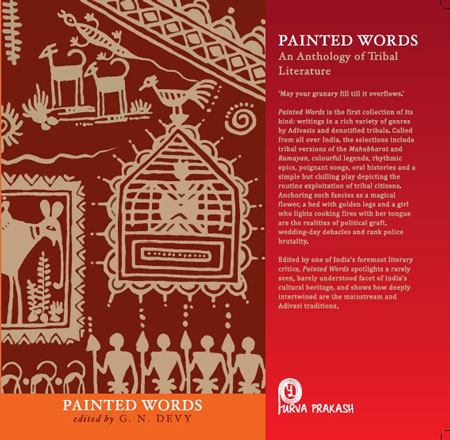Santosh Patnaik, The Hindu, ONUKUDELLI, February 25, 2012
[…] A `human safari’ controversy over semi-nude dances by members of one of the most primitive tribal groups in Odisha’s Malkangiri district had recently led to an undeclared ban being imposed on the entry of outsiders into the tribal hamlets.
The Odisha government had acted after advertisements on the Internet by certain travel operators offering to display Bonda tribal people had come to the attention of the authorities. The offer involved entertainment for the tourists provided by tribals, scantily-clad and sporting heavily beaded and thick silver necklace bands.
Following a local media furore in December 2011, Additional Secretary, Panchayati Raj, Usha Padhee, IAS, had been asked by Chief Minister Naveen Patnaik to conduct an enquiry. Her report is believed to have recommended steps to protect the dignity and self-respect of the Bonda tribes; it has not been made public. Highly placed officials, however, told The Hindu that there were instructions from the Chief Minister’s office not to allow tourist groups into tribal villages.
It was only recently that a public outcry was caused by video footage on a nude dance by Jarawa tribes in the Andamans archipelago. […]
“I was very disturbed at the sight of the primitive tribespeople being made into beggars. This is not a good trend,” said Dr. Susan Horsewood. She said she was shocked at the news of alleged human safari of Bondas.
Malkangiri Collector Balwant Singh said the administration had taken several initiatives to protect the culture of Bondas and bring about improvement in their socio-economic conditions. Most of them live in sub-human conditions on hilltops.
According to Census 2011, the Bonda tribe has a population of less than 12,000, and they are not a dwindling tribe.
Source: The Hindu : States / Other States : Voyeuristic tribal tourism continues in Odisha
Address : https://www.thehindu.com/news/states/other-states/article2929185.ece
Date Visited: Tue Mar 20 2012 19:28:44 GMT+0100 (CET)
Tips for using interactive maps
Toggle to normal view (from reader view) should the interactive map not be displayed by your tablet, smartphone or pc browser
For details and hyperlinks click on the rectangular button (left on the map’s header)
Scroll and click on one of the markers for information of special interest
Explore India’s tribal cultural heritage with the help of another interactive map >>
See also
Adverse inclusion | Casteism | Rural poverty
Demographic Status of Scheduled Tribe Population of India (Census figures 2011)
Fact checking | Figures, census and other statistics
Human Rights Commission (posts) | www.nhrc.nic.in (Government of India)
Search tips | Names of tribal communities, regions and states of India
“What is the Forest Rights Act about?” – Campaign for Survival and Dignity
“Who are Scheduled Tribes?” – Government of India (National Commission for Scheduled Tribes, NCST)

Tribal Literature by G.N. Devy >>
Free eBooks & Magazine: Adivasi literature and languages >>
“India, a union of states, is a Sovereign, Secular, Democratic Republic with a Parliamentary system of Government. The President is the constitutional head of Executive of the Union. In the states, the Governor, as the representative of the President, is the head of Executive. The system of government in states closely resembles that of the Union. There are 28 states and 8 Union territories in the country. Union Territories are administered by the President through an Administrator appointed by him/her. From the largest to the smallest, each State/UT of India has a unique demography, history and culture, dress, festivals, language etc. This section introduces you to the various States/UTs in the Country and urges you to explore their magnificent uniqueness…” – KnowIndia (Government), States and Union Territories (Visited: 2 September 2023)
Learn more about India’s 28 States and 8 Union Territories – From Andhra Pradesh to West Bengal | Nutrition >>
Learn more
Accountability | Constitution and Supreme Court | Democracy
Adivasi (Adibasi) | Scheduled Tribes (ST) | Classifications in different states | Tribal Research Institutes
Adverse inclusion | Casteism | Imprisonment | Social conventions
Ambedkar | He who does not lead his life under the direction of others … is a free man
Anthropology | Anthropological Survey of India (AnSI)
Biodiversity | Hyderabad biodiversity pledge
Childhood | Childrens rights: UNICEF India | Safe search
Climate change | United Nations on climate change
Colonial policies | Denotified Tribe vs. “criminal tribe“
eBook | Background guide for education
eBook | Demographic Status of Scheduled Tribe Population of India (Census figures 2011)
Ekalavya and Drona shape collective expectations from a teacher and a student
Fact checking | Figures, census and other statistics
Health and nutrition | Recommendations by the Expert Committee
How many ‘Scheduled Tribes’ are there in India? | Latest list (ST): tribal.nic.in (Govt. of India)
Human Rights Commission (posts) | www.nhrc.nic.in (Government of India)
National Commission for Scheduled Tribes
News update in Indian periodicals: Tribal Affairs
Nomadic and Semi-Nomadic Tribes | SEED – Government scheme